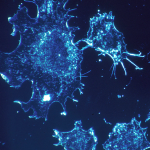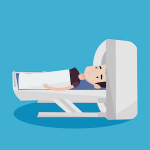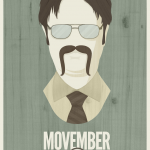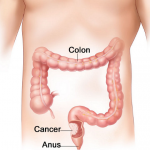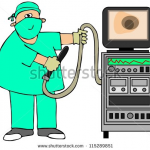An Israeli group has discovered that some cancers can be identified by blood tests that identify the DNA of different fungi that grow within different tumors. Could this be a breakthrough in cancer screening? Or maybe more? A strange but fascinating theory.
cancer screening
Should we turn our nose up at using a dog's keen sense of smell as a cancer screening tool? Or to help identify relevant biomarkers that scientists should be isolating for diagnostic purposes?
Humans suffer from "do something syndrome." New research shows that 51% of Americans want to be screened for cancer, even if explicitly told that the cancer screen is completely ineffective.
The mustaches are the symbolic equivalent of the pink ribbons associated with breast cancer awareness. Let's help the men in our lives take control of their health – and fight against preventable diseases.
Colorectal cancer is the second-leading cause of cancer death in the U.S. Finding it early can vastly improve the chances for successful treatment, but screening rates are low, even though screening is known to be effective. But if people are reminded to be screened, or are sent in-home tests, the screening rates improve.
A new paper published in the journal Open Forum Infectious Diseases showed that 3 percent of men who undergo prostate biopsies end up being hospitalized within a month. Worse, half of those hospitalizations are due to an infection – and 45 patients died.
No one looks forward to chugging a gallon of gag-inducing bowel-prep and spending hours running to the bathroom, all as a prelude to an even more pleasant experience involving a snaking tube and a camera. So if you're averse to a colonoscopy, here are other options you can consider -- albeit with some caveats.
The American College of Physicians has come out with a report that questions the value of current screening recommendations and protocols. The report, released yesterday in the Annals of Internal Medicine, calls into question whether current screening practices exhibit high
What began as a novel finding in pregnant women may now be a revolutionary breakthrough in oncology. In 1997 researchers in Hong Kong first discovered the presence of small chunks of the growing fetus s DNA circulating in the mother s blood. In eighteen years since its discovery, scientists have developed a way to detect and sequence this
In an opinion piece published in today s New York Times, Dr. Richard J. Ablin addresses the serious problems with prostate cancer screening. Dr. Ablin discovered the prostate-specific antigen, or PSA, in 1970 (although widespread PSA screening didn t become routine until the 1990s) and it
In her follow-up to last week s column on cancer screening s pros and cons in general, Jane E. Brody takes on screening mammography for breast cancer in today s New York Times Science section: Retesting Breast Cancer Axioms. She addresses the conflict women face as to when to start
